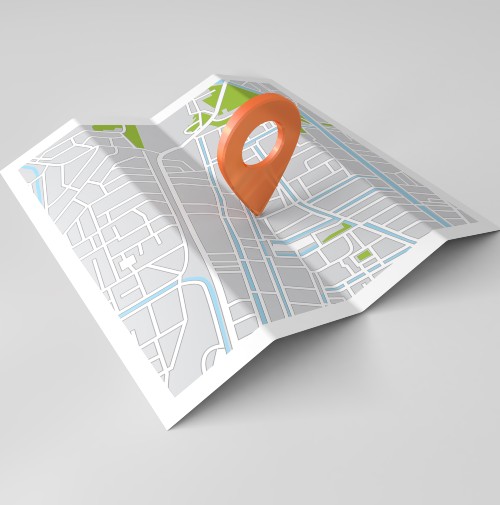
Register
Program
| 7:00 pm ET | Welcome and Introductions | Keith Newton, MD (moderator) |
| 7:05 pm ET | Understanding Pain Fellowship Options: Chronic Pain, Acute Pain, Interventional Spine, etc. | Moderated Panel Discussion Magdalena Anitescu, MD, PhD Michael Farrell, MD Priyanka Ghosh, MD Rene Przkora, MD, PhD |
| How Do Choices Affect This Process? School/Degree/Specialty/Residency Program | ||
| Activities During Residency: Research, Exams (ITE, Basic, Steps), Mentors | ||
| When to Apply | ||
| Where to Apply: How do programs differ? Which will be a good fit? How many programs? | ||
| Preparing an Application: Letters, Personal Statement, Extracurriculars, Research | ||
| After Application Submission: Interviews, Follow-up Communication, Match/Outside the Match | ||
| 7:40 pm ET | Q & A – Panel Discussion | All faculty |
| 8:00 pm ET | Adjournment |
Faculty
See all faculty disclosures
Scientific/Education Planning Committee
Andrea Chadwick, MD; University of Kansas School of Medicine, Leawood, KS
Ki-Jinn Chin, MBBS, FANZC, FRCPC; Toronto Western Hospital, Toronto, Ontario
Keith Newton, MD; University
of Central Florida, Ocala, FL
Faculty
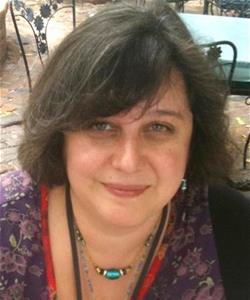
Magdalena Anitescu, MD, PhD, is a professor of anesthesia and critical care, program director for the multidisciplinary pain medicine fellowship, and section chief of pain management services at the University of Chicago Medicine in Chicago, IL. She completed a surgical internship at the University of Iowa and an anesthesia residency at the University of Pittsburgh Medical Center. Following a pain medicine fellowship at the Cleveland Clinic, she joined the faculty at the University of Chicago. She is an accomplished national and international educator, author of numerous textbook chapters and scientific papers, and a member of many professional organizations, editorial boards, and scientific committees that review the academic curriculum for various pain medicine meetings. She developed and edited a series of textbooks for anesthesiology subspecialties based on the problem-based mode of learning. Dr. Anitescu focuses research on improving the quality of life of patients with acute, chronic, or cancer pain through multimodal, multifaceted interventions as well as use of infusion pharmacology and neuromodulation.
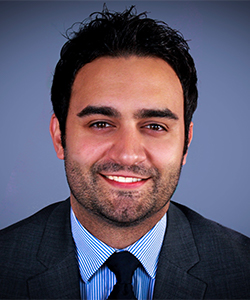
Michael E. Farrell II, MD, is a current pain medicine fellow at the University of Pittsburgh Medical Center. He recently completed PM&R residency at the MedStar Georgetown University Hospital National Rehabilitation Hospital. His interests include minimally invasive spine care, neuromodulation, and clinically based research and education.
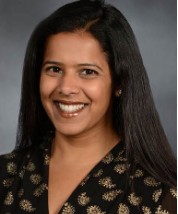
Priyanka Ghosh, MD, graduated Brown University with her dual degree with Honors in both Neuroscience and Literary, and completed her MD with Distinction at the University of California, San Francisco (UCSF). While simultaneously attending medical school, Dr. Ghosh continued to pursue her passion for research with a highly competitive and prestigious National Institute of Health (NIH) funded research fellowship, in which she independently designed and executed a clinical trial utilizing novel technology to treat pain in patients with head and neck cancer. She continued on to complete her residency at Harvard Medical School in the Department of Anesthesia, Critical Care and Pain Medicine at Beth Israel Deaconess Medical Center (BIDMC). She then went onto the prestigious Weill Cornell Tri-Institute Pain Fellowship, where she trained at three of the nation's leading hospitals: Memorial-Sloan Kettering Cancer Center, Hospital for Special Surgery and New York Presbyterian Hospital. During her fellowship, she received the very prestigious “Fellow of the Year” Award from the American Society of Regional Anesthesia and Pain Medicine (ASRA), which is awarded annually to one fellow in the country. In addition, given that New York was the epicenter of COVID-19 pandemic, she volunteered to serve as an intensive care unit physician in the COVID-19 ICUs in Manhattan while continuing her pain medicine training.
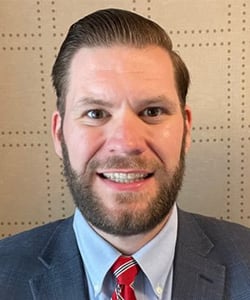
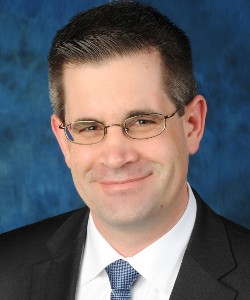
Rene Przkora, MD, is a professor and chief of the pain medicine division. He is the director of the multispecialty pain medicine fellowship and served as assistant program director of the anesthesiology core residency at the University of Florida from 2016 to 2020. His practice includes acute/chronic pain medicine and operating room anesthesia. Dr. Przkora is active in simulation and curriculum development, and participates in local graduate medical education activities as well as in their evaluations such as mock oral and OSCE exams.
CME-CPD
To receive your CME certificate
- Download the Credit Claim Form.
- Indicate the number of hours you attended (credit will be verified against registration).
- Send the completed form to asrameetings@asra.com.
- Your certificate will be emailed to you within 1 week.
Educational objectives
After participating in this educational activity, participants should be able to:
- Discuss fellowship program options.
- List steps to take prior to application season.
- Describe the chronic pain application timeline.
- Explain the process for a chronic pain fellowship.
Target audience
The webinar is designed for any resident pain physicians in or outside chronic pain eligible specialties interested in learning about chronic pain fellowship process.
Accreditation and credit designation statements
| Credits by Day | Maximum |
| October 21, 2021 | 1.00 |
| Total Credits | 1.00 |
Physicians
The American Society of Regional Anesthesia and Pain Medicine is accredited by the Accreditation Council for Continuing Medical Education (ACCME) to provide continuing medical education for physicians.
The American Society of Regional Anesthesia and Pain Medicine designates this internet live activity (“course”) for a maximum of 1.00 AMA PRA Category 1 Credits™. Physicians should claim only the credit commensurate with the extent of their participation in the activity.
PAs (Physicians Assistants)
AAPA accepts certificates of participation for educational activities certified for AMA PRA Category 1 Credit™ from organizations accredited by ACCME or a recognized state medical society.
Physician assistants may receive a maximum of 1.00 hours of Category 1 credit for completing this program.
Nurse Practitioners
The American Association of Nurse Practitioners (AANP) accepts AMA PRA Category 1 Credits™ from organizations accredited by the ACCME. This activity has been approved for a maximum of 1.00 AMA PRA Category 1 Credits™.
Registered Nurses
Regulations dictate that only physicians may earn CME credits, however, many state Boards of Registered Nursing accept AMA PRA Category 1 Credits™ from organizations accredited by the ACCME. Attendees
are responsible for confirming their specific board’s acceptance of ASRA-provided credits. This activity has been approved for a maximum of 1.00 AMA PRA Category 1 Credits™.
The American Board of Anesthesiology® MOCA®
This activity contributes to the CME requirements for Part II: Lifelong Learning and Self-Assessment of the American Board of Anesthesiology’s (ABA) redesigned Maintenance of Certification in Anesthesiology Program® (MOCA®), known as MOCA
2.0™. Please consult the ABA website, www.theABA.org, for a list of all MOCA 2.0 requirements. Maintenance of Certification in Anesthesiology
Program® and MOCA® are registered certification marks of The American Board of Anesthesiology®.
ASRA is an ABA-approved provider and, as a service to ASRA members and participants, CME credits are reported to the ABA. Participants must include their correctly formatted ABA ID number (34567890) during the online evaluation and credit claim process
available at the conclusion of the activity. Once the online evaluation and credit claim process is closed, certificates will be issued and credits reported to the ABA. After this time, participants may request their CME certificate by contacting
asrameetings@asra.com, but ASRA will no longer report credits to the ABA, which will then be the individual participant’s responsibility.
International credits
Royal College of Physicians and Surgeons of Canada
The Royal College of Physicians and Surgeons of Canada has agreements based on the mutual recognition of credit points with the American Medical Association for live and web-based
(synchronous or asynchronous) educational events. You may submit your CME certificate directly for credit recognition of this accredited group learning activity (Section 1) as defined by the Maintenance of Certification program of The Royal
College of Physicians and Surgeons of Canada. For more information, visit: www.royalcollege.ca
European Accreditation Council for Continuing Medical Education (UEMS-EACCME)
The UEMS-EACCME has agreements based on the mutual recognition of credit points with the American Medical Association for live and e-learning educational
events. Each medical specialist should claim only those hours of credit that he/she actually spent in the educational activity. The EACCME is an institution of the European Union of Medical Specialists (UEMS): www.uems.net
Commercial support disclosure
No industry support has been received for this educational activity.
Disclosure and resolution of personal conflicts of interest
Click here to view all faculty disclosures. In accordance with the ACCME’s Standards for Integrity and Independence and related policies, ASRA is committed to ensuring balance, independence, objectivity, and scientific rigor in its CME/CPD activities. Those in control of the educational content disclose all relevant relationships (financial or other) with any ineligible company that they have had within the past 24 months. If an individual refuses to disclose, they are disqualified from participating. Disclosure information is evaluated and conflicts of interest resolved. Disclosure is made to participants prior to the activity. Participants are asked to evaluate the objectivity and independence. Off-label or investigational use of a therapeutic product is also disclosed.
Check Out These Upcoming Programs
-
Apr16
-
Mar21
-
Feb10